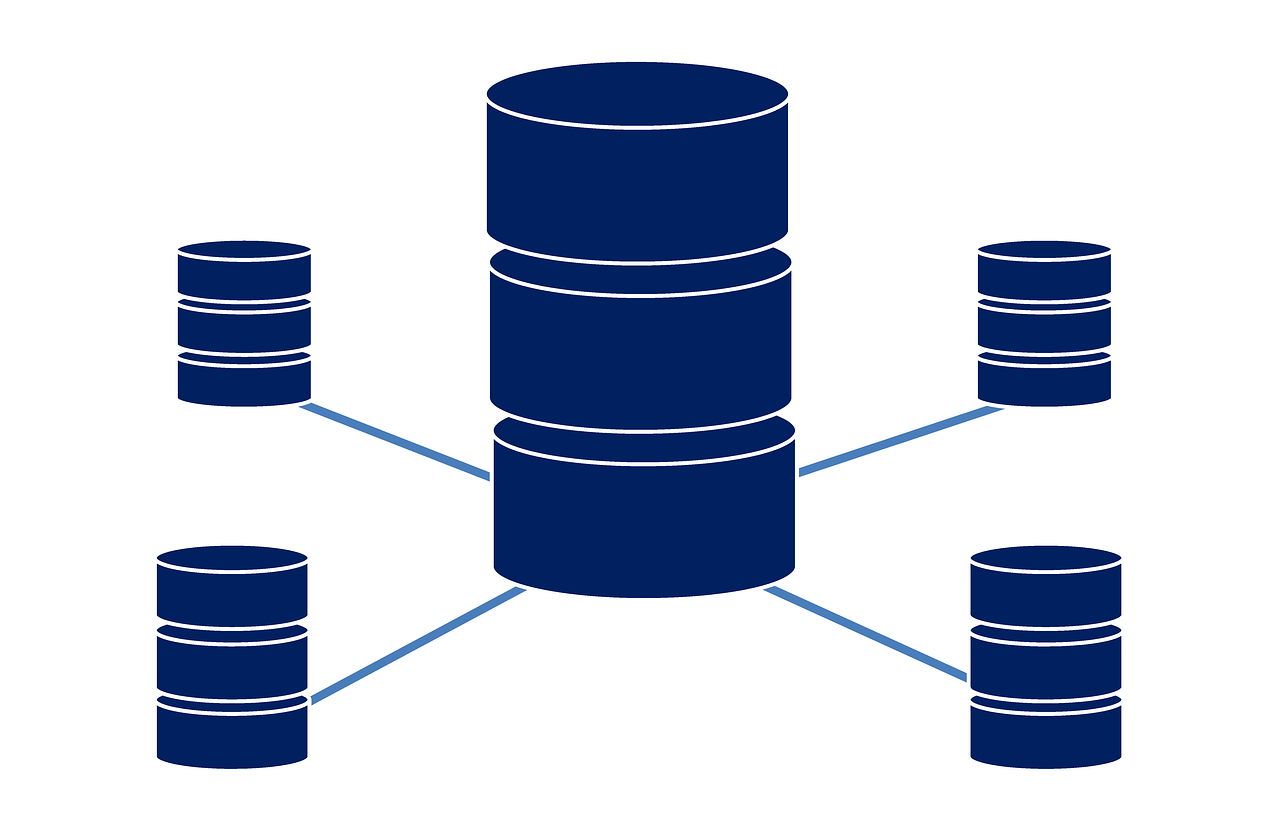Table of Contents
The Comprehensive Web Hosting Buying Guide
Web hosting is fundamental for anyone looking to establish an online presence, whether for a personal blog, a business website, or an e-commerce store. Selecting the right web hosting provider and plan is crucial to ensure your website performs well, remains accessible to visitors, and aligns with your needs and budget. In this comprehensive web hosting buying guide, we'll cover everything you need to know to make an informed decision, including types of web hosting, key features to consider, and tips for choosing the right hosting provider.
1. Understanding Web Hosting
1.1 What is Web Hosting?
Web hosting is a service that allows individuals and organizations to make their websites accessible on the Internet. Websites consist of various files, including HTML, CSS, images, videos, and databases, which need to be stored on powerful computers known as servers. These servers are connected to the internet 24/7, ensuring that your website is available to visitors worldwide.
In essence, a web hosting provider rents out server space and resources to users, giving them the infrastructure to store and deliver web content. When someone types your website's domain name into their web browser, their device sends a request to your hosting server, retrieving and displaying the relevant files and making your website accessible.
1.2 Types of Web Hosting
Several types of web hosting are available, each catering to different needs and budgets. Understanding the distinctions between these hosting types is essential when choosing the right one for your website.
1.2.1 Shared Hosting
Shared hosting is the most basic and cost-effective hosting option. In this setup, multiple websites share the same server and its resources, including CPU, RAM, and storage. While shared hosting is suitable for small personal websites and blogs, it may not provide optimal performance for high-traffic or resource-intensive sites due to the shared nature of resources.
1.2.2 Virtual Private Server (VPS) Hosting
VPS hosting offers a higher degree of resource isolation compared to shared hosting. In this setup, a physical server is divided into multiple virtual servers, each with dedicated resources. VPS hosting provides more control, stability, and performance than shared hosting, making it suitable for medium-sized businesses and growing websites.
1.2.3 Dedicated Server Hosting
Dedicated server hosting
provides an entire server dedicated to a single user or organization. This option offers the highest level of control, customization, and performance. Dedicated servers are ideal for large e-commerce sites, corporate websites, and applications that require significant resources.
1.2.4 Cloud Hosting
Cloud hosting
relies on a network of virtual servers hosted across multiple physical servers and data centers. It offers scalability, redundancy, and high availability. With cloud hosting, you pay only for the resources you use, making it suitable for websites with fluctuating traffic or resource needs.
1.2.5 WordPress Hosting
WordPress hosting
is tailored explicitly for websites built on the WordPress content management system (CMS). It often includes pre-installed WordPress software, specialized support, and performance optimization for WordPress sites. This option is ideal for bloggers, small businesses, and anyone using WordPress as their platform.
1.2.6 Reseller Hosting
Reseller hosting allows individuals or businesses to purchase hosting resources and resell them to others. This option suits entrepreneurs looking to start their hosting businesses or web designers who want to offer hosting as part of their services.
1.3 Factors to Consider When Choosing a Hosting Type
When selecting a hosting type, consider the following factors:
Website Size and Traffic: Evaluate the size of your website and the expected traffic volume. High-traffic sites may require more resources from VPS or dedicated hosting.
Budget: Determine your budget for hosting. Shared hosting is cost-effective, while VPS, dedicated, and cloud hosting are more expensive.
Resource Requirements: Consider the specific resource needs of your website, such as CPU, RAM, storage, and bandwidth.
Scalability: Assess whether your hosting choice allows easy scaling as your website grows.
Technical Expertise: Consider your technical skills and whether you require a hosting type with greater control and customization options.
Security: Evaluate the security features the hosting type offers to protect your website from threats and attacks.
Reliability and Uptime: Check the provider's uptime guarantees to ensure your website remains accessible to visitors.
2. Key Features to Evaluate
Selecting a web hosting provider goes beyond choosing a hosting type. You must also evaluate specific features that can significantly impact your website's performance and user experience.
2.1 Uptime and Reliability
Uptime refers to when a hosting server remains operational and accessible to visitors. Look for a hosting provider with a strong track record of uptime, typically represented as a percentage (e.g., 99.9% uptime). Downtime can negatively affect your website's visibility and credibility.
2.2 Performance and Speed
Factors like server hardware, resource allocation, and server location influence website performance. Opt for a hosting provider that offers robust hardware, utilizes content delivery networks (CDNs) to improve load times, and has servers located geographically close to your target audience.
2.3 Scalability
Choose a hosting provider that can upgrade your hosting plan easily as your website grows. Scalability ensures your site can handle increased traffic and resource demands without disruption.
2.4 Storage and Bandwidth
Evaluate the amount of storage and bandwidth offered by the hosting provider. Ensure you have sufficient storage for your website files, databases, and media. Bandwidth determines how much data can be transferred to and from your website, affecting page load times and user experience.
2.5 Customer Support
24/7 customer support is crucial if you encounter technical issues or need assistance. Test the responsiveness and helpfulness of the hosting provider's support team before committing to their services.
2.6 Security
Security features are vital to protect your website from cyber threats. Look for hosting providers that offer features like SSL certificates, regular security updates, firewalls, and malware scanning. Data backups are also essential for disaster recovery.
2.7 Control Panel and User-Friendliness
An intuitive control panel simplifies the management of your hosting account. Popular control panels include cPanel, Plesk, and custom options provided by hosting companies. Choose one that aligns with your technical expertise.
2.8 Price and Value for Money
Consider the features and resources included in the pricing plans of different hosting providers. Consider renewal prices, as introductory rates may increase significantly after the initial term. Assess whether the features and performance justify the cost.
3. Additional Considerations
3.1 Domain Name Registration
Consider whether the hosting provider offers domain name registration services. Some providers include free domain registration for the first year with hosting plans, while others may charge separately.
3.2 Email Hosting
Check if the hosting plan includes email hosting with customizable email addresses using your domain name. Professional email addresses enhance your website's credibility.
3.3 Backup and Recovery
Regular data backups are essential for safeguarding your website's content. Determine whether the hosting provider offers automated backup solutions and how often backups are performed.
3.4 E-commerce Features
If you plan to run an online store, ensure that the hosting plan supports e-commerce features, including SSL certificates, payment gateway integration, and shopping cart software.
3.5 Content Management System (CMS) Compatibility
If you use a specific CMS like WordPress, Joomla, or Drupal, ensure that your hosting provider offers compatibility and optimized hosting environments for your chosen CMS.
3.6 Data Center Locations
Consider the location of the hosting provider's data centers. Choosing a data center close to your target audience can improve website performance and load times.
3.7 Privacy and Data Protection Compliance
Verify that the hosting provider complies with privacy regulations like GDPR (General Data Protection Regulation) if your website collects and stores user data.
4. Selecting a Hosting Provider
Now that you have a clear understanding of the key factors and features to consider, follow these steps to select a hosting provider:
4.1 Research and Comparison
Conduct thorough research by reading reviews, comparing hosting plans, and assessing the reputations of different hosting providers. Look for providers with a history of reliable service and positive customer feedback.
4.2 Customer Reviews and Testimonials
Read customer reviews and testimonials to gain insight into the experiences of other users with the hosting provider. Pay attention to feedback regarding uptime, support, and performance.
4.3 Customer Support Evaluation
Test the hosting provider's customer support by reaching out with questions or concerns. Assess their response time, willingness to assist, and the quality of their solutions.
4.4 Free Trials and Money-Back Guarantees
Many hosting providers offer free trials or money-back guarantees. Please use these to test the provider's services and ensure they meet your expectations.
4.5 Hosting Provider Reputation
Consider the reputation and longevity of the hosting provider in the industry. Established providers with a track record of reliable service are often a safer choice.
5. Making the Final Decision
Before making your final decision, take the following factors into account:
5.1 Aligning Hosting with Your Goals
Ensure the hosting provider and plan align with your website's goals and requirements. Consider both current and future needs, as well as any specific technical or performance demands.
5.2 Future Growth and Scaling
Think about how your website may grow and evolve. Choose a hosting provider with scalability and flexibility to accommodate your future needs.
5.3 Budget Considerations
Evaluate the overall cost of hosting, including any additional services or add-ons. Balance your budget with the features and performance you require.
5.4 Migration and Setup
Plan for the migration of your website to the chosen hosting provider. Confirm whether the provider offers migration assistance or tools to simplify the process.
6. Conclusion
Selecting the right web hosting provider and plan is a critical decision that can significantly impact your website's performance, security, and user experience. By understanding the types of web hosting available, evaluating key features, considering additional factors, researching hosting providers, and aligning your choice with your website's goals, you can make an informed decision that sets your online presence up for success. Remember that web hosting is not a one-size-fits-all solution, so take the time to find the hosting option that best meets your unique needs and requirements.


